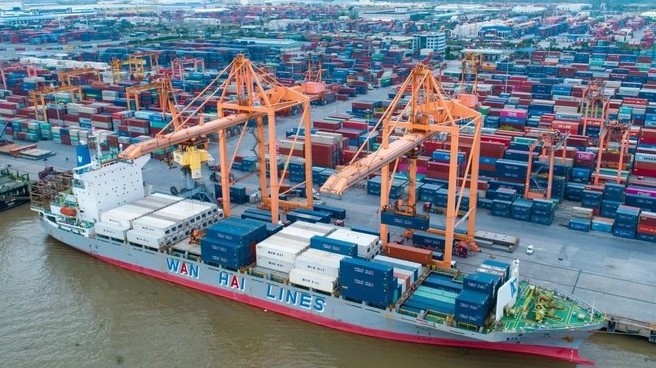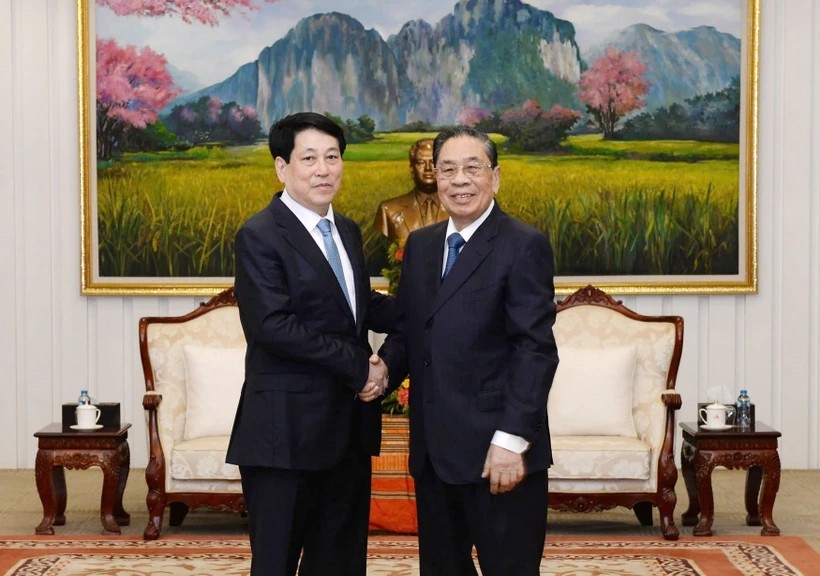Vietnam's Economy Through International Perspective: Highlights From Operating Policies
| Chinese Ambassador: PM Pham Minh Chinh's Visit Affirms Vietnam's Role in World Economy | |
| Vietnam's Economic Development Receives International Recognition |
In the first six months of 2024, Vietnam's economy faced great pressure from many factors. Factors such as weak global demand, prolonged geopolitical tensions, and the US Federal Reserve (Fed) delaying interest rate cuts have created risks to the market and exchange rates.
Domestically, the economy is also under pressure from stagnant consumption, and absorbing capital flows at low interest rates has not been as expected.
In that difficult context, the economy still recorded impressive Gross Domestic Product (GDP) growth at 6.4% over the same period last year, thanks to strategic and flexible policies.
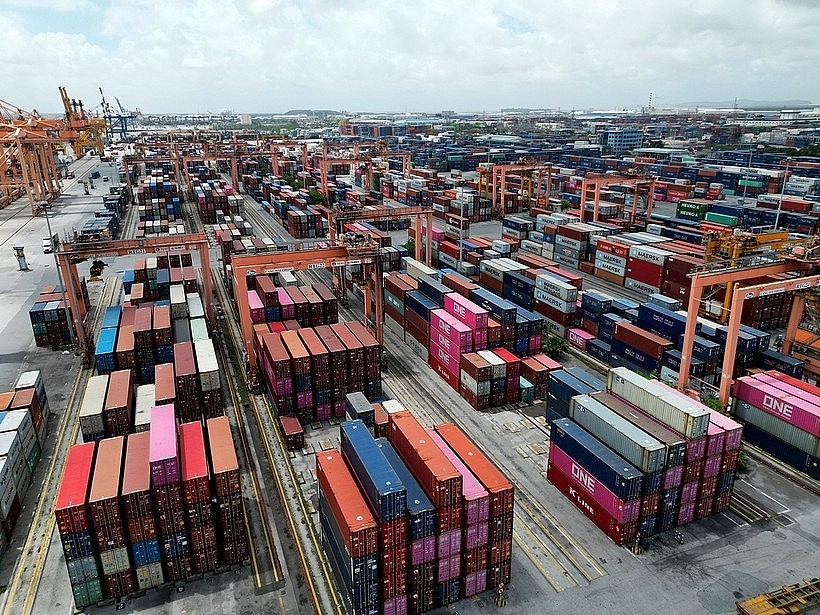 |
| Container warehouse at Tan Vu port. Photo: VNA |
Push from trade and investment
Shantanu Chakraborty, country director of the Asian Development Bank (ADB) in Vietnam, said that in the first half of 2024, the Vietnamese economy made an impression with GDP growth reaching 6.4% over the same period last year.
This was mainly driven by a strong recovery in the trade sector, with exports up 14.5%, and imports up 17% year-on-year. However, domestic consumption activities have not yet prospered.
Besides the resurgence of the trade sector, ADB Country Director said that data on production, and foreign direct investment (FDI) show many positive signs.
Vietnam's purchasing managers' index (PMI) in June 2024 was at 54.7, showing an optimistic outlook for domestic manufacturing activities. Meanwhile, ADB's report also shows that FDI investment in both registered capital and realized capital in the first half of 2024 is positive.
Looking at the whole year 2024, ADB Chief Economist Nguyen Ba Hung believes that the second half of the year will be more difficult than the first half of the year, partly because growth indicators in the first half of this year benefited from the low starting point of the first half of 2023.
However, ADB continues to maintain an optimistic view with forecasts of Vietnam's economic growth reaching 6% in 2024, and 6.2% in 2025.
Shantanu Chakraborty believes that this is a fairly healthy growth rate amid the current world geopolitical situation, along with internal and external challenges to the economy.
According to the ADB Country Director, factors including maintaining trade recovery in export-oriented manufacturing sectors, positive FDI inflows, and remittances will help Vietnam's economy maintain growth in 2024.
In addition, he affirmed that growth will be strongly boosted by public investment, factors such as the return of the service sector, stable agricultural production, and recovery in domestic consumption.
Skillful management policies
ADB estimates that inflation in Vietnam will remain stable at 4.0% in 2024 and 2025, despite persistent pressure from geopolitical tensions and disruptions in the global supply chain.
Shantanu Chakraborty said that this is the "sweet fruit" of the State Bank of Vietnam's skillful monetary policy management.
He said the State Bank has done a great job maintaining a prudent monetary policy during a challenging time of balancing growth needs, and inflationary pressures.
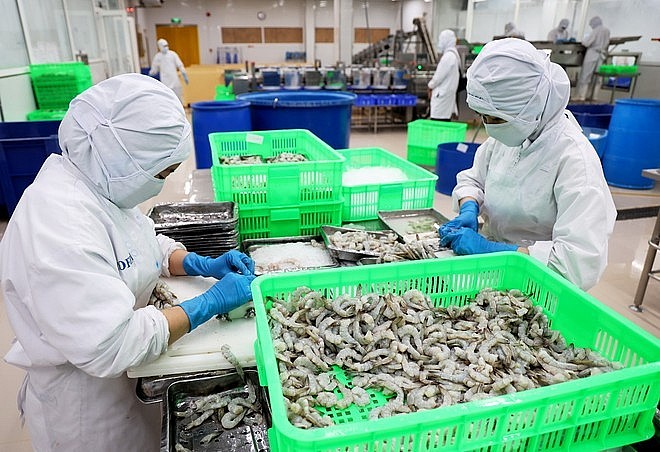 |
| Preliminary processing of shrimp for export at Duyen Hai Economic Development Company - COFIDEC, Binh Chanh district, Ho Chi Minh City. Photo: VNA |
That is why Vietnam recorded a decrease in inflation last year but GDP still grew by 5.05% - one of the highest growth rates in the region. This is thanks to the State Bank's timely move to reduce interest rates, with a total of three reductions in 2020, to promote growth.
However, now, the State Bank does not have much space left to further loosen monetary policy because real interest rates have dropped to low levels. Therefore, Chakraborty believes that Vietnam needs to focus on fiscal policy, using investment to improve demand and credit growth.
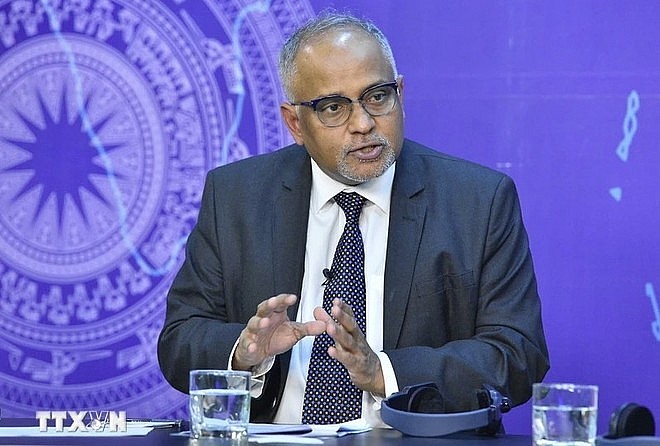 |
| Shantanu Chakraborty, country director of the Asian Development Bank (ADB) in Vietnam. Photo: VNA |
He said the two monetary and fiscal policies need to coordinate with each other, so that the benefits from loosening monetary policy will be transformed into a positive "catalyst" in the fiscal space, shown through stronger levels of credit absorption and investment.
Regarding trade policies, Chief Economist Nguyen Ba Hung said that one of the factors that help Vietnam attract FDI more actively than other countries is the presence of a system of free trade agreements.
They allow businesses located in Vietnam to access more markets around the world, thereby serving investment and export models.
 | World Bank: Indonesia Takes The Lead as ASEAN's Largest Economy The World Bank (WB) estimates that among ASEAN countries, Indonesia's economy will grow sustainably at a steady pace in the coming years thanks to a ... |
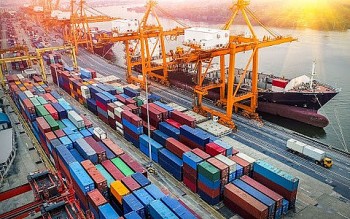 | Vietnam's Economy Grows 6.93% in Second Quarter of 2024 The country's economy continues on a positive trend as the Southeast Asian country reported a GDP increase of 6.93 % during the second quarter of ... |

